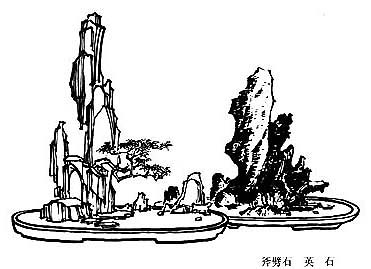論
語
Lun Yu 
 – The Analects of Confucius
– The Analects of Confucius
The Master discusses with his disciples and unveil his preoccupations with society. Tr. Legge (en), Lau (en) and Couvreur (fr).
                                       | |||||||||||||||||||||||||||||||||||||||||||||||||
| |||||||||||||||||||||||||||||||||||||||||||||||||
 |  |
Lunyu XIV. 4. (351)
We may predicate the external from the internal, but not vice versa.
The Master said, "The virtuous will be sure to speak correctly, but those whose speech is good may not always be virtuous. Men of principle are sure to be bold, but those who are bold may not always be men of principle."
Legge XIV.5.
The Master said, 'A man of virtue is sure to be the author of memorable sayings, but the author of memorable sayings is not necessarily virtuous. A benevolent man is sure to possess courage, but a courageous man does not necessarily possess benevolence.'
Lau [14:4]
Le Maître dit : « Qui possède la Vertu ne peut qu'avoir de l'éloquence ; qui possède l'éloquence n'est pas nécessairement doué de Vertu. Qui possède la plénitude humaine ne peut être que courageux ; mais qui est courageux n'est pas nécessairement pleinement humain. »
Couvreur XIV.5.

The Analects of Confucius – Lun Yu XIV. 4. (351) – Chinese on/off – Français/English
Alias the Lunyu, the Lun Yü, the Analects, les Entretiens du maître avec ses disciples.
The Book of Odes, The Analects, Great Learning, Doctrine of the Mean, Three-characters book, The Book of Changes, The Way and its Power, 300 Tang Poems, The Art of War, Thirty-Six Strategies
Welcome, help, notes, introduction, table.
Index – Contact – Top
